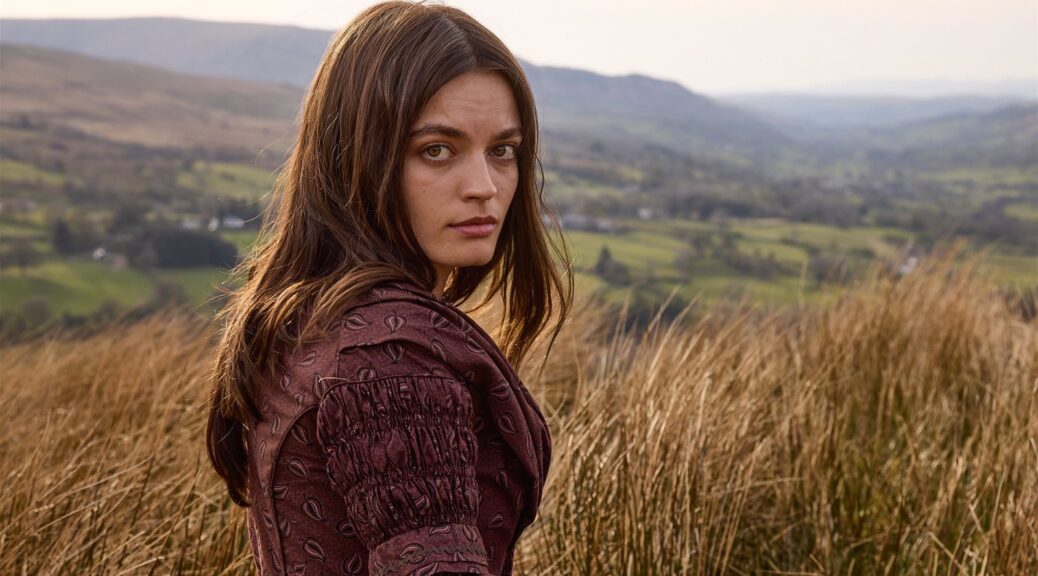Emily
by Hope Madden
Wuthering Heights was always a conundrum of Gothic literature. It is mean, its tragedies ugly, its heroes selfish and boorish. It’s a dark and misanthropic piece of fiction often mistaken as romance.
Lucky for all of us, Frances O’Connor appreciates the twisted nastiness of the novel and suggests a vividly unusual inner life for its author in her feature debut, Emily.
Emma Mackey stars with an understated but authentic weirdness as the misfit Brontë sister. Emily doesn’t seem suited for teaching, or for much of anything. The stories she tells are childish and they embarrass her sisters, and she won’t let anyone read what she’s writing. She seems to disappoint everyone around her except her brother, Branwell (Fionn Whitehead).
In O’Connor’s loose biopic, Emily finds the space to explore once her sisters are gone off to teach and she is alone with Branwell. The filmmaker slyly inserts memorable scenes from Brontë’s novel as moments, here more innocent, between brother and sister. These moments work on many levels, but mainly because writers draw from their own lives.
The dynamic complicates and Emily’s transformation deepens as an unexpected, almost involuntary suiter comes into the picture. Untethered by the judgments of her sisters, Emily is free to determine her own course and the journey is intoxicating to witness. Mackey glows as her character slowly, finally comes into her own, giving us a dimensional, tender and delicately genius young woman you yearn to know better.
Whitehead charms in a slightly underwritten but nonetheless poignant role. Oliver Jackson-Cohen – so different than the unrelenting narcissist of The Invisible Man – delivers the greatest arc of any character as assistant parson William. His performance is never showy, but moments of vulnerability give the film its heartbeat and heartbreak.
O’Connor breathes life with all its chaos, misery and joy into the Brontës’ 19th century. Emily feels less like the vision of a newcomer than the product of a passionate kindred spirit.




